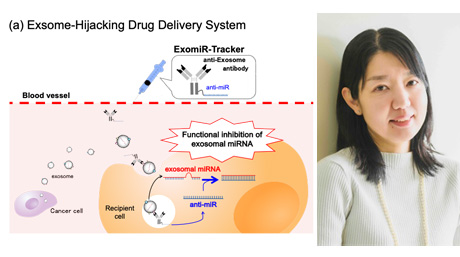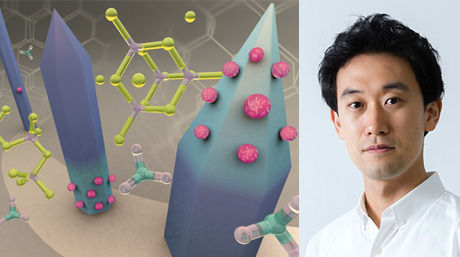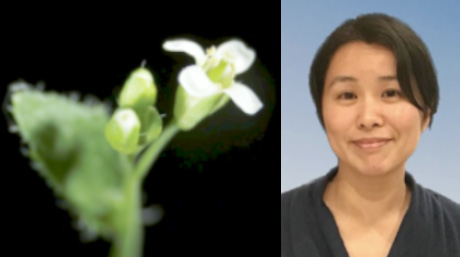Life Science and Technology News
【Labs spotlight】 Komada Laboratory
Quest for novel mechanisms of tumorigenesis
The Department has a variety of laboratories for Life Science and Technology, in which cutting-edge innovative research is being undertaken not only in basic science and engineering but also in the areas of medicine, pharmacy, agriculture, and multidisciplinary sciences.
This "Spotlight" series features a laboratory from the Department and introduces you to the laboratory's research projects and outcomes. This time we focus on Komada Laboratory.
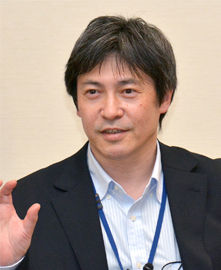
Areas of Supervision
Primary/Life Science and Technology
Professor Masayuki Komada![]()
(Cell Biology Unit, Institute of Innovative Research)
| Degree | PhD 1994, University of Tokyo |
|---|---|
| Areas of Research | Cell Biology, Biochemistry, Medical Science |
| Keywords | Ubiquitin, Protein Degradation, Membrane Traffic, Endocytosis, Receptor Downregulation, Tumorigenesis |
| Website | Komada Laboratory Cell Biology Unit |
Research interest
The human body is composed of approximately 6 x 1013 cells, and our daily activities can eventually be interpreted as activities of individual differentiated cells. Because many diseases are caused by impairment of normal cellular activities, understanding the cell functions is of significant medical importance for unveiling the pathogenesis and developing the drugs of human diseases.
Protein ubiquitination is an important regulatory mechanism of cell functions in eukaryotes. Conjugation of a small protein "ubiquitin" to various intracellular proteins serves as a tag that regulates the fates/functions of the target proteins in multiple ways. The Nobel Prize for chemistry in 2004 was awarded for the discovery of the ubiquitin function.
Using human cells in culture and genetically-engineered mice, we study the ubiquitination-mediated regulation of growth factor receptor downregulation and cell proliferation in mammalian cells. As a major achievement, we have recently found that mutations in a deubiquitinating enzyme USP8 lead to an intractable disease "Cushing's disease". This discovery opened a path for the medical treatment of Cushing's disease, and we now focus on the molecular pathogenesis of the disease at cell biological levels, aiming at the development of anti-Cushing's disease drugs.
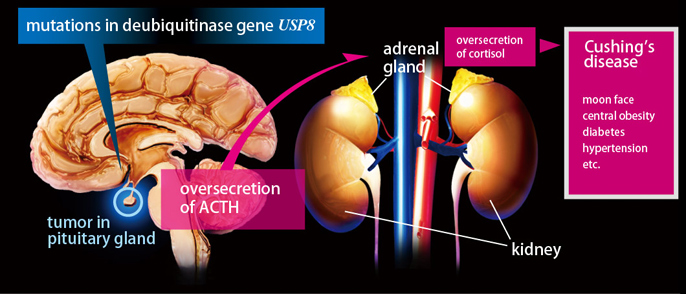
Research findings
Selected publications
- 1. Yanagawa T, Denda K, Inatani T, Fukushima T, Tanaka T, Kumaki N, Inagaki Y & Komada M: Deficiency of X-linked protein kinase Nrk during pregnancy triggers breast tumor in mice. Am. J. Pathol. 186, 2751-2760 (2016)
- 2. Burana D, Yoshihara H, Tanno H, Yamamoto A, Saeki Y, Tanaka K & Komada M: Ankrd13 family of ubiquitin-interacting motif-bearing proteins regulates VCP/p97-mediated lysosomal traffic of caveolin-1. J. Biol. Chem. 291, 6218-6231 (2016)
- 3. Reincke M, Sbiera S, Hayakawa A, Theodoropoulou M, Osswald A, Beuschlein F, Meitinger T, Mizuno-Yamasaki E, Kawaguchi K, Saeki Y, Tanaka K, Wieland T, Graf E, Saeger W, Ronchi CL, Allolio B, Buchfelder M, Strom TM, Fassnacht M & Komada M: Mutations in the deubiquitinase gene USP8 cause Cushing's disease. Nat. Genet. (Article) 47, 31-38 (2015)
- 4. Sun XX, He X, Yin L, Komada M, Sears RC & Dai MS: The nucleolar ubiquitin-specific protease USP36 deubiquitinates and stabilizes c-Myc. Proc. Natl. Acad. Sci. USA 112, 3734-3739 (2015)
- 5. *Theodoropoulou M, Reincke M, Fassnacht M & *Komada M (*co-correspondence): Decoding the genetic basis of Cushing's disease: USP8 in the spotlight. Eur. J. Endorinol. 173, M73-M83 (2015)
- 6. Tanno H, Shigematsu T, Nishikawa S, Hayakawa A, Denda K, Tanaka T & Komada M: Ubiquitin-interacting motifs confer full catalytic activity, but not ubiquitin chain substrate specificity, to deubiquitinating enzyme USP37. J. Biol. Chem. 289, 2415-2423 (2014)
- 7. Tanno H, Yamaguchi T, Goto E, Ishido S & Komada M: The Ankrd 13 family of UIM-bearing proteins regulates EGF receptor endocytosis from the plasma membrane. Mol. Biol. Cell 23, 1343-1353 (2012)
- 8. Hanafusa H, Ishikawa K, Kedashiro S, Saigo T, Iemura S, Natsume T, Komada M, Shibuya H, Nara A & Matsumoto K: Leucine-rich repeat kinase LRRK1 regulates endosomal trafficking of the EGF receptor. Nat. Commun. 2, 158 (2011)
- 9. Mukai A, Yamamoto-Hino M, Awano W, Watanabe W, *Komada M & *Goto, S (*co-correspondence): Balanced ubiquitylation and deubiquitylation of Frizzled regulate cellular responsiveness to Wg/Wnt. EMBO J. 29, 2114-2125 (2010)
- 10. Sato Y, Yoshikawa A, Yamagata A, Mimura H, Yamashita M, Ookata K, Nureki O, Iwai K, Komada M & Fukai S: Structural basis for selective cleavage of Lys63-linked polyubiquitin chains. Nature (Article) 455, 358-362 (2008)
- Research Laboratories and Subjects
- A new tumor suppressor gene for breast cancer in mice | Life Science and Technology News
- Genetics research demystifies fatal glandular disease | Tokyo Tech News
Contact
Professor Masayuki Komada
5F East, S2 building, Suzukakedai campus
E-mail : makomada@bio.titech.ac.jp
*Find more about the lab and the latest activities at the lab site![]() .
.
*May 1, 2025:Some of the content has been updated with the latest information.


